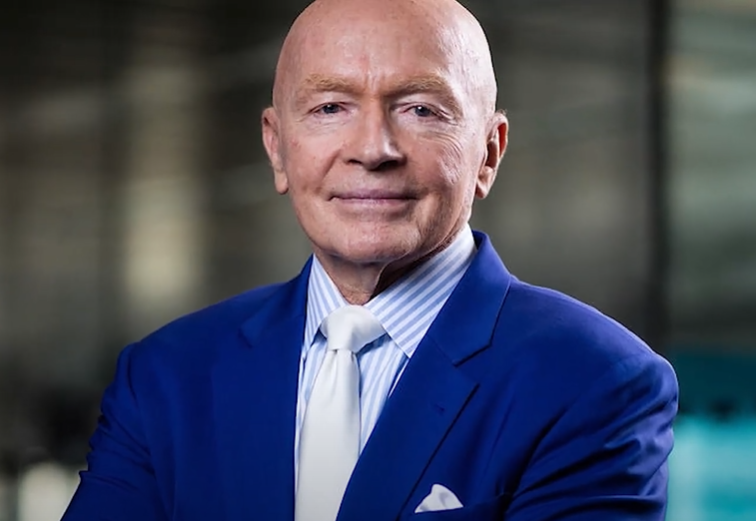Trade Deal with Mexico Is Key for the U.S., Says Mark Mobius: So far in 2025, global markets have shown far stronger performance than the U.S., reflecting a broader shift in investor sentiment and global trade dynamics. Germany’s DAX has surged 22% year-to-date, reaching record highs, while the UK’s FTSE 100 is up 8%, and France’s market has gained 5%. Latin American markets have also rallied, with both Brazil and Mexico posting gains of more than 10%. In stark contrast, the U.S. benchmark S&P 500 index has risen only 1% in the same period. This underperformance comes at a time when trade tensions, particularly between the U.S. and China, are once again making headlines.
Trade Deal with Mexico Is Key for the U.S., Says Mark Mobius
So far in 2025, global markets have shown far stronger performance than the U.S., reflecting a broader shift in investor sentiment and global trade dynamics. Germany’s DAX has surged 22% year-to-date, reaching record highs, while the UK’s FTSE 100 is up 8%, and France’s market has gained 5%. Latin American markets have also rallied, with both Brazil and Mexico posting gains of more than 10%. In stark contrast, the U.S. benchmark S&P 500 index has risen only 1% in the same period. This underperformance comes at a time when trade tensions, particularly between the U.S. and China, are once again making headlines.
Against this backdrop, Mark Mobius, Chairman of the Mobius Emerging Opportunities Fund, shared his insights on what’s shaping the current global investment environment. According to Mobius, a key upcoming event is the U.S.-China trade talks, set to take place in London. These discussions are critically important, Mobius said, especially considering China’s vital role in supplying parts and components to manufacturers worldwide, particularly in the United States. The health of these trade relationships has far-reaching implications across industries.
However, Mobius raised concerns about the political climate in China, especially President Xi Jinping’s weakening position. He suggested that Xi’s standing has deteriorated, partly due to the troubled Chinese economy and ongoing tensions with the U.S. This internal weakness may complicate negotiations. Mobius noted that these political developments in China are significant and should not be overlooked, as they influence how trade talks might unfold.
While China remains a central focus, Mobius believes the U.S. must urgently shift its attention toward new trade allies. He emphasized that a trade deal with Mexico is absolutely key for the U.S. economy going forward. U.S. companies, especially in manufacturing, are heavily reliant on Mexico for parts, components, and assembly. Mobius indicated that Mexico is likely to become even more critical in the evolving global supply chain, particularly as U.S. firms seek to diversify away from China.
After Mexico, Mobius sees India as the next strategic partner for the United States. India, he argued, is well-positioned to gradually replace China in the manufacturing of labor-intensive goods. Several factors make India attractive: its young and growing population—where the average age is just 26 compared to 38 in China—and a population of over 1.2 billion people. Additionally, India is experiencing real GDP growth between 7 and 8 percent, which Mobius sees as a sustainable and powerful economic driver. He noted that the Indian stock market has rebounded sharply since March, and he expects it to continue on an upward trajectory.
Mobius also addressed the performance and positioning of his fund. A few weeks ago, he had said his fund was holding largely in cash, awaiting better entry points. Now, with improved clarity, he is gradually investing more, particularly in India. He stated that his new fund will likely begin deploying capital into India within the next few weeks, which will help bring down the currently high levels of cash. Despite these moves, he remains cautious, indicating that cash levels are still elevated, in part due to global uncertainties.
When asked about the optics and execution of the Trump administration’s trade strategy, Mobius noted that there has been a gap between announcements and action. While the administration had suggested that several trade deals, including one with the UK, were imminent, progress has been slow. He believes that foreign governments are carefully observing domestic political developments in the U.S. These include President Trump’s political controversies and legislative gridlock—especially the fact that certain trade bills have not yet been passed by the Senate. This creates hesitation among potential trade partners, who may be waiting for a more stable environment or the chance to negotiate better terms.
Mobius pointed out that the domestic political turbulence in the U.S. is indeed being watched globally and may influence the timeline and nature of future trade agreements. International counterparts are aware of the pressure on the Trump administration to secure deals and may use that to their advantage in negotiations.
In conclusion, the current global landscape is rapidly shifting. While U.S. markets underperform, international markets are showing strength, and trade relations are being reshaped. China’s uncertain internal politics and weakening economy pose challenges for negotiations, while Mexico and India are emerging as vital players in global supply chains. According to Mark Mobius, the U.S. must act decisively to deepen its economic ties with these countries. For investors and policymakers alike, the message is clear: the balance of power is moving, and aligning with new partners like Mexico and India will be crucial to staying competitive in the years ahead.
Disclaimer:
The content of this blog is for informational purposes only and should not be construed as financial or investment advice. The views expressed by Mark Mobius are based on public interviews and do not constitute a recommendation to buy or sell any financial instruments. Investors should conduct their own research or consult a professional advisor before making investment decisions. The blog does not hold any responsibility for investment actions taken based on this content.

